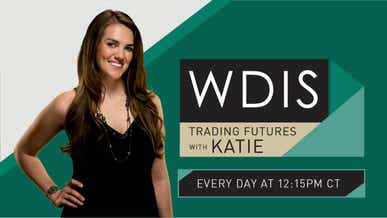Futures Trading Fundamentals: Where Do I Start?

Futures Trading Fundamentals: Where Do I Start?
We are happy to present content from a recent episode of Where Do I Start which featured a review of key fundamentals in futures trading.
Futures programming on the tastylive network is sponsored in part by the CME Group, a preeminent global futures exchange located in the United States.
A future is of course a financial product obligating the buyer/seller to purchase/sell an asset (commodity or financial instrument) at a predetermined future price and date.
Futures are standardized to trade on an exchange and may require the physical delivery of an asset or settlement in cash (both types exist).
Futures contracts may be used for speculative purposes or for hedging. For example, farmers may use futures to lock in a price for their crop by selling a futures contract representing a portion of their crop. Alternatively, a trader might establish a speculative position based on their expectation for future price movement.
On Where Do I Start, hosts Pete Mulmat and Katie McGarrigle review some of the most important concepts traders need to keep in mind when embarking on the futures trading journey.
First, the standardized nature of futures contracts is a critical factor to keep in mind. This structure means that each and every futures trade establishes an agreement on the following terms:
- Quantity
- Quality
- Delivery Point
- Delivery Date and Time
So why are traders drawn to futures?
One big reason is that the market is available to traders on a 24-hour basis. This flexibility allows traders to react to important breaking news instantly in the futures market, which can be imperative for portfolio managers hedging larger exposure in other products.
Some other reasons that traders use futures products include:
- Efficient Use of Capital
- Access to non-correlated returns (6 different sectors)
- Options-like mechanics (familiarity)
An important differentiation between futures and other products like stocks and ETFs is that futures margin is referred to as "good faith money," or Performance Bond. Performance bond means that both sides of the transaction have deposited money to ensure they can maintain their responsibility in the contact.
There are several other important terms that traders starting in the futures arena need to be keenly aware of:
Initial Margin: Amount of money required per contract to initiate a futures position.
Maintenance Margin: Minimum balance that must be maintained at all times (dropping below this level results in a margin call).
The amount of maintenance margin differs across products in the spectrum of futures. The level of maintenance margin will vary because certain products are more volatile, or possess a higher absolute price - all of which increases the net risk of the trade. The higher the risk of the futures product, the higher the initial and maintenance margins.
Notional value is another key concept to understand when trading futures. This is the total dollar value a trader has at risk in any given position. In stocks, notional value is calculated by multiplying the number of shares bought or sold times the execution price.
The notional value of a future is calculated in a similar manner - multiplying the price by the contract size/multiplier.
For example, "/CL" is an oil future that represents 1,000 barrels per contract. If "/CL" is trading at a price of $44.89, then you would multiply $44.89 x 1,000 to get the notional value of 1 contract in "/CL."
In this case, the notional value of one contract in "/CL" is $44,890.
The Where Do I Start series is an excellent place to learn more about futures trading. We invite you to not only watch the entire episode covered in this blog post, but also to watch new episodes that air on the tastylive network Monday through Friday. The team will be covering additional fundamental aspects of trading futures as well as specific examples and strategies that traders can apply within their own portfolios.
If you have any questions, comments, or suggestions we hope you will contact us at support@tastylive.com
Thank you for being a part of the tastylive community!
Sage Anderson has an extensive background trading equity derivatives and managing volatility-based portfolios. He has traded hundreds of thousands of contracts across the spectrum of industries in the single-stock universe.
Options involve risk and are not suitable for all investors. Please read Characteristics and Risks of Standardized Options before deciding to invest in options.